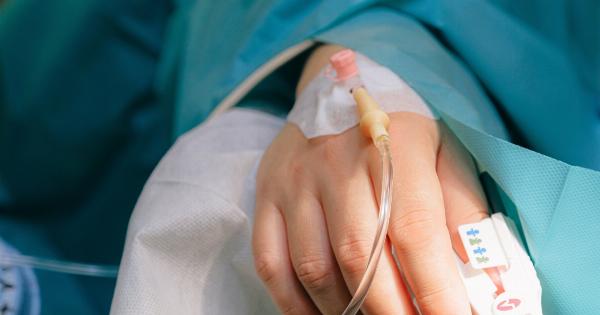Food poisoning is a common occurrence caused by ingesting contaminated food or drink. It can cause a range of symptoms, from mild to severe, and can even be life-threatening in some cases.
Understanding the symptoms and treatment of food poisoning is crucial to preventing serious health complications.
What is food poisoning?
Food poisoning, also known as foodborne illness, is an infection or irritation of the digestive system that results from consuming contaminated food or drink.
Contamination can occur at any stage of the food production process, from harvesting to preparation, and can be caused by bacteria, viruses, parasites, or toxins.
What are the symptoms?
The symptoms of food poisoning can vary depending on the type of contamination, but typically include:.
- Nausea and vomiting
- Diarrhea
- Abdominal pain and cramps
- Fever and chills
- Weakness and fatigue
In some cases, more severe symptoms may occur, such as dehydration, neurological symptoms, and even organ failure. It is important to seek medical attention if you experience any of these symptoms.
What are the common causes of food poisoning?
The most common causes of food poisoning are bacterial infections, such as Salmonella, E. coli, and Listeria. These bacteria can be found in undercooked or raw meat, poultry, eggs, and seafood.
Other sources of contamination include fruits and vegetables that have been contaminated by soil or water, unpasteurized dairy products, and improperly canned foods.
Viruses, such as norovirus, can also cause food poisoning. Norovirus is highly contagious and can be transmitted through contaminated food, water, and surfaces.
Parasites, such as Cryptosporidium and Giardia, can also cause food poisoning. These parasites are typically found in contaminated water or food and can cause severe gastrointestinal symptoms.
How is food poisoning diagnosed?
Your doctor can diagnose food poisoning through a physical examination, medical history, and laboratory tests. During the exam, your doctor will ask about your symptoms and any recent food or drink consumption.
Laboratory tests, such as a stool culture, can confirm the presence of a bacterial or parasitic infection.
How is food poisoning treated?
The treatment for food poisoning depends on the type and severity of infection. Treatment may include:.
- Resting and staying hydrated
- Taking over-the-counter medications, such as anti-diarrheal medication or pain relievers
- Antibiotics, if the infection is bacterial
- Avoiding solid foods for a period of time to allow the digestive system to rest
In severe cases, hospitalization may be required to receive intravenous fluids or other treatments.
How can food poisoning be prevented?
Preventing food poisoning requires proper food handling and preparation. Some tips to prevent food poisoning include:.
- Thoroughly washing hands with soap and water before and after handling food
- Cooking meats to the proper temperature to kill bacteria
- Storing food at the appropriate temperature
- Avoiding cross-contamination by keeping raw meat and poultry separate from other foods
- Washing fruits and vegetables thoroughly before eating
- Avoiding raw or undercooked foods, including eggs, meat, and seafood
Practicing good hygiene, such as washing hands frequently and avoiding close contact with sick individuals, can also help prevent the spread of foodborne illnesses.
Conclusion
Food poisoning is a serious health concern that can cause a range of symptoms, from minor discomfort to life-threatening complications.
Understanding the symptoms and causes of food poisoning is important for preventing its occurrence and seeking prompt medical attention if necessary. By adopting proper food handling and preparation techniques, we can all work to minimize the risk of contamination and stay healthy.


























